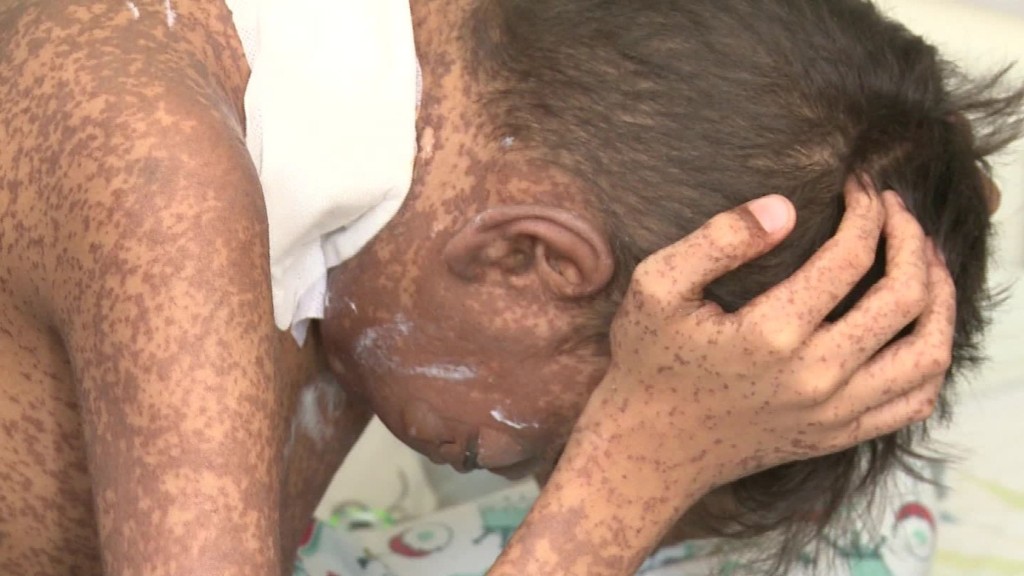
Venezuelan President Nicolas Maduro finally admitted his government can't afford to pay all of its mounting bills.
Maduro said in a televised speech Thursday that Venezuela and its state-run oil company, PDVSA, will seek to restructure their debt payments.
The oil company made a $1.1 billion payment on Thursday, he said, a sizable amount for a country with only $10 billion left in the bank. "But after this payment, starting today, I decree a refinancing and a restructuring of the external debt," Maduro told the country.
Venezuela is already deep into a humanitarian crisis, with people suffering from food and medical shortages. Many can't afford to buy basic items because prices are skyrocketing faster than wages. The country's currency, the bolivar, is worth less than a tenth of a U.S. penny.
Related: Venezuela blames Trump for missed debt payments
If Maduro's government can't reach a new agreement with bondholders over the debt restructuring -- which often means trying to pay less money -- it will end up defaulting.
That would trigger a potentially ugly series of events.
Investors in the U.S. and elsewhere could seize Venezuelan oil as collateral.
Oil is the government's only significant source of external revenue and therefore its only way to buy food and medicine for its 30 million citizens. Because the government mismanaged vast swaths of farmland, it must import almost all food.
Agreeing on a new payment schedule is no easy feat with Wall Street investors. Just ask Argentina. Its government fought in U.S. courts for 15 years to resolve its unpaid debts.
Argentina's government was shut out of international debt markets over that time, which ultimately crippled its economy. Argentines called the investors "vulture funds" because they bought the bonds on the cheap and then sued the government to get much higher payments. The two sides reached a settlement in early 2016, shortly after a new Argentine government took office.
Related: Venezuela tell citizens to eat rabbits amid food shortages
Venezuela's experience at the negotiating table could actually be much worse. All told, Venezuela owes about $65 billion in bonds denominated in foreign currencies, mostly in dollars, according to research firm Capital Economics. Venezuela also owes debts to China, Russia, oil service providers, airlines and a slew of other entities.
Its top negotiator also has a problem: He can't do business in the U.S.
Maduro has appointed Vice President Tareck El Aissami to lead the debt restructuring efforts. In February, the U.S. Treasury Department accused El Aissami of drug trafficking and froze his assets in the U.S. El Aissami denies the accusations.
Meanwhile, Maduro and others in his government have tried to pin the blame on President Trump for Venezuela's debt problems after Trump slapped stiff financial sanctions on the country in August.
After the state oil company, PDVSA, made a large debt payment last week, it didn't mince its words.
The company said it made the payment, "despite the economic war, unjustified imposition of sanctions by Donald Trump, and the sabotage, persecution and financial blockade to which the Republic and its institutions have been subjected by a significant portion of the international financial system as commanded by imperialism."


